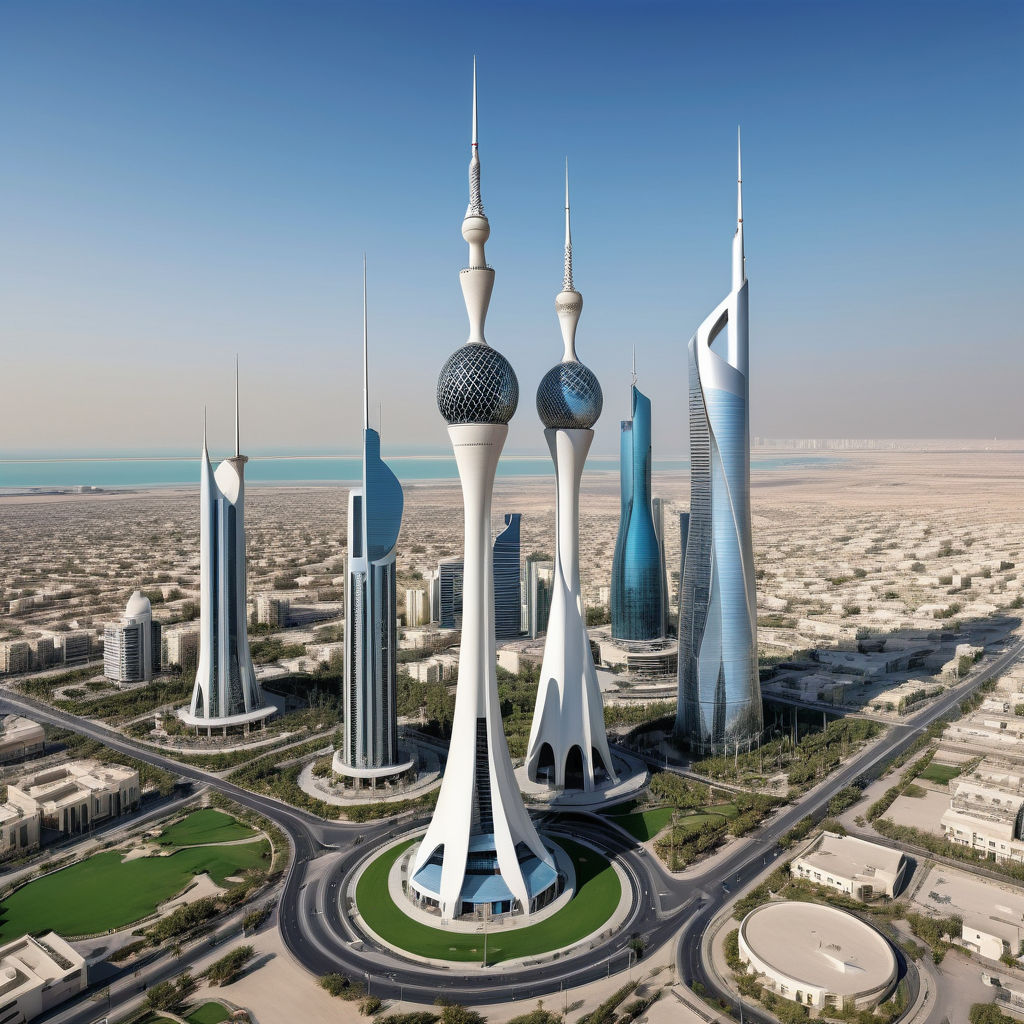Discover Kuwait: A Blend of Tradition and Modernity
Exploring Kuwait’s Rich Cultural Heritage and Cross-cultural Interactions

Introduction to Kuwait
Kuwait, located at the northwestern tip of the Persian Gulf, is a small but affluent nation known for its rich cultural heritage and significant oil reserves. Bordered by Iraq to the north and west, Saudi Arabia to the south, and the Persian Gulf to the east, Kuwait occupies a strategic location in the Middle East. The capital city, Kuwait City, is the country's political, cultural, and economic hub, featuring modern skyscrapers, bustling markets, and historic sites. Other major cities include Al Ahmadi, known for its oil industry, and Hawalli, a residential and commercial area. Kuwait’s cultural heritage is a blend of Bedouin traditions, Islamic practices, and influences from its maritime history.
Cross-national and Cross-cultural Understanding
Kuwaitis generally have a nuanced perspective on cross-national and cross-cultural understanding, shaped by their country's history as a center of trade and its contemporary status as a global oil producer. The Kuwaiti people are exposed to various cultures through international business, education, and a significant expatriate population. The government of Kuwait actively promotes cross-cultural understanding through educational programs and international partnerships. Institutions like Kuwait University and the American University of Kuwait offer diverse curricula and host international students, fostering an environment of cultural exchange. Additionally, Kuwait’s participation in global organizations such as the United Nations and the Gulf Cooperation Council emphasizes its commitment to international cooperation. Cultural exchanges are also facilitated through events like the Kuwait International Book Fair and the annual Hala February festival, which celebrate Kuwaiti culture while inviting global participation. These events provide platforms for cross-cultural dialogue and mutual understanding.
Interactions and Social Dynamics
Interactions between Kuwaitis and foreigners are characterized by a blend of traditional hospitality and modern cosmopolitanism. Kuwaitis are known for their warm hospitality, often welcoming guests with traditional Arabic coffee and dates. This hospitality extends to social interactions, where respect and politeness are paramount. Social behaviors in Kuwait are influenced by Islamic values, which emphasize modesty, respect for elders, and community solidarity. Public interactions are generally formal, especially between men and women, due to cultural and religious norms. However, Kuwaitis are also open and curious about other cultures, which facilitates positive interactions with foreigners. The role of language is crucial in these interactions. While Arabic is the official language, English is widely spoken, particularly in business and educational settings. This multilingualism helps bridge cultural gaps and enhances communication between Kuwaitis and expatriates. Moreover, the diverse expatriate community, which includes people from South Asia, Europe, and other Arab countries, adds to the multilingual and multicultural environment in Kuwait.
Views on Dating and Relationships
Dating and relationships in Kuwait are influenced by cultural and religious norms that prioritize family approval and social decorum. Traditional values still hold strong, especially in more conservative circles, where dating is often conducted with a view towards marriage. However, urban areas like Kuwait City are witnessing a gradual shift towards more liberal attitudes, influenced by globalization and increased exposure to different cultures. Dating between Kuwaitis and foreigners is generally accepted, provided it respects local customs and traditions. Public displays of affection are considered inappropriate, and couples are expected to be discreet. Understanding and adhering to these cultural expectations is essential for maintaining respectful relationships.
Marriage and Family
Marrying foreigners in Kuwait involves navigating various legal, social, and familial considerations. Legally, mixed marriages are permitted, but they require adherence to specific procedures, including obtaining approvals from relevant authorities. Socially, acceptance of cross-cultural marriages varies, with urban areas being more open compared to rural regions. Family plays a central role in Kuwaiti marriages. It is common for families to be actively involved in the matchmaking process and in the couple’s life post-marriage. Cross-cultural marriages, therefore, necessitate a deep understanding and respect for each partner’s cultural background to ensure familial harmony. Kuwaiti weddings are grand affairs that blend traditional and modern elements. These events provide opportunities for the couple’s families to come together, fostering cross-cultural understanding and mutual respect.